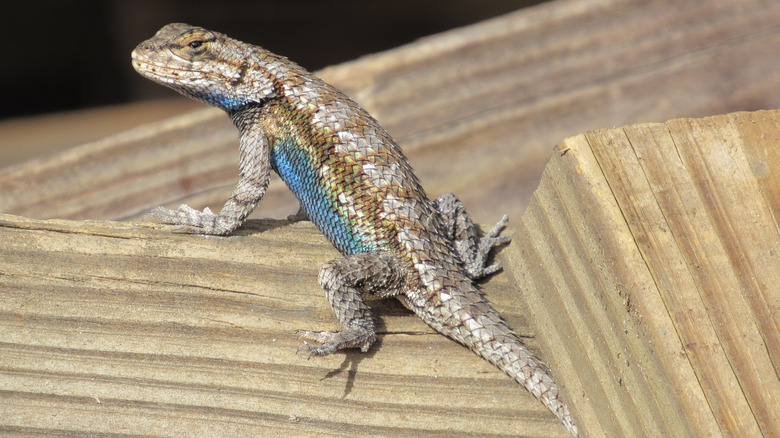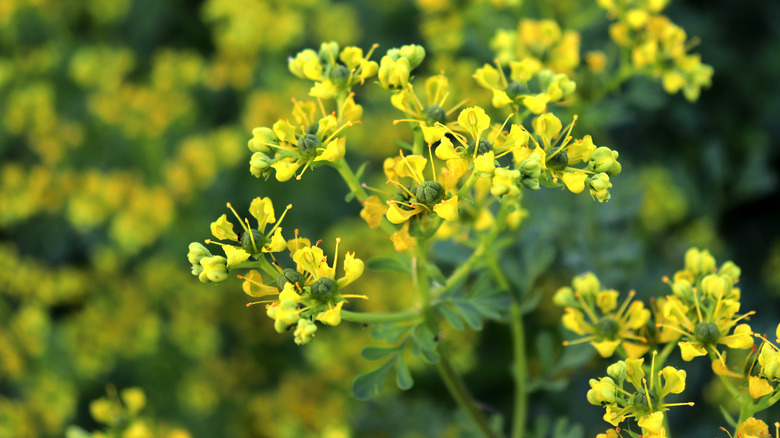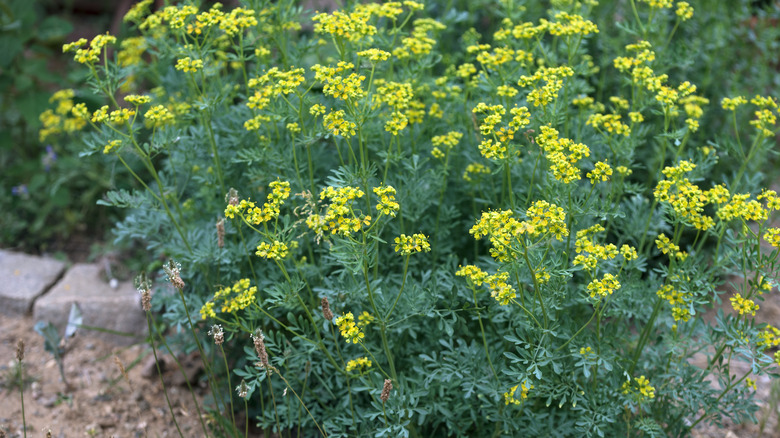Can This Gorgeous Plant Really Discourage Sneaky Lizards From Entering Your Home?
Lizards aren't necessarily bad for your yard or garden, but many people may not want to see them coming too close to their home (or in it!), especially since they can bite. One strategy that some people use to keep them at bay is planting herb-of-grace, sometimes called "Rue" or Ruta graveolens, near their homes. This ornamental herb has a strong, pungent scent that may be able to dissuade various pests from coming near it, including lizards.
The thought is that this plant may work to overpower their olfactory glands, like most other significant scents, making it hard for them to find a food source nearby. As a result, positioning this plant near your home safely could help to discourage sneaky lizards from wanting to be near your property. While there haven't been any studies confirming the efficacy, it could be worth trying to see if the lizards near you take the hint.
Though a beautiful plant, with flowers that range in color from yellow to blue and even green, there are some precautions to consider about this plant before placing it near your home. There are risks to doing so since this plant's leaves have an oil that can cause skin damage and may be dangerous if ingested by your pets, as noted by NC State Extension. If you plan to use it, you'll want to take some precautions to minimize those risks to you and your pets — here's what you need to know.
How an herb can ward off lizards
Herb-of-grace's Latin name is "Ruta graveolens," and that's a clue as to why this plant works to deter various pests, including Japanese beetles and lizards of most types. The term means "strong scent" — something that lizards aren't too fond of. Lizards have powerful olfactory receptors located on the roof of their mouth. When they whip their tongue out into the air, they pick up tiny particles from the scent in the air, placing them on the roof of their mouth to distinguish between enemy or prey. When the lizard does this with such a strong scent, its sensory cells are overpowered. This doesn't hurt them, but it makes it impossible for the lizard to actually smell anything else nearby, including food or a threat. The end result is the lizard scurrying away from the distinct smell.
Keep in mind this type of natural repellent against lizards isn't going to work well in an area that's already infested heavily with lizards. A heavy infestation near your home (or in it) may mean it's best to call in an exterminator to remove the critters for good. You can then use herb-of-grace as a possible prevention tool to keep them from coming back.
How to get the best results for using herb-of-grace
As noted previously, herb-of-grace is a poisonous plant that can make you, your children, or your pets ill if consumed. Always wear gloves when touching this ornamental herb (it's never safe to consume it even though it's been used in herbal medicine in the past). Most often, dogs and cats will be deterred by it, but if you have pets that like to munch on flowers, skip placing this plant anywhere where they can get to it. You can also place it inside a covered, tent-like structure to keep any pets from getting close enough to it to cause illness. It's beautiful enough to add depth and vibrance to your garden, but you'll need to be cautious about letting anyone come too close to it.
To get the best results in repelling lizards, start by removing all food sources near the home, including smaller bugs that attract lizards to the property. Then, place herb-of-grace near the entrance points to your yard, working as a type of guardian to ward off animals who would be willing to come into your yard.
They tend to grow to about 3 feet tall and spread outward readily, often like a taller creeping groundcover. They do best in moist, organic, and balanced-nutrient soil. Place several plants at various points in your yard every few feet for the best bet. Herb-of-grace needs full sun to part shade.


